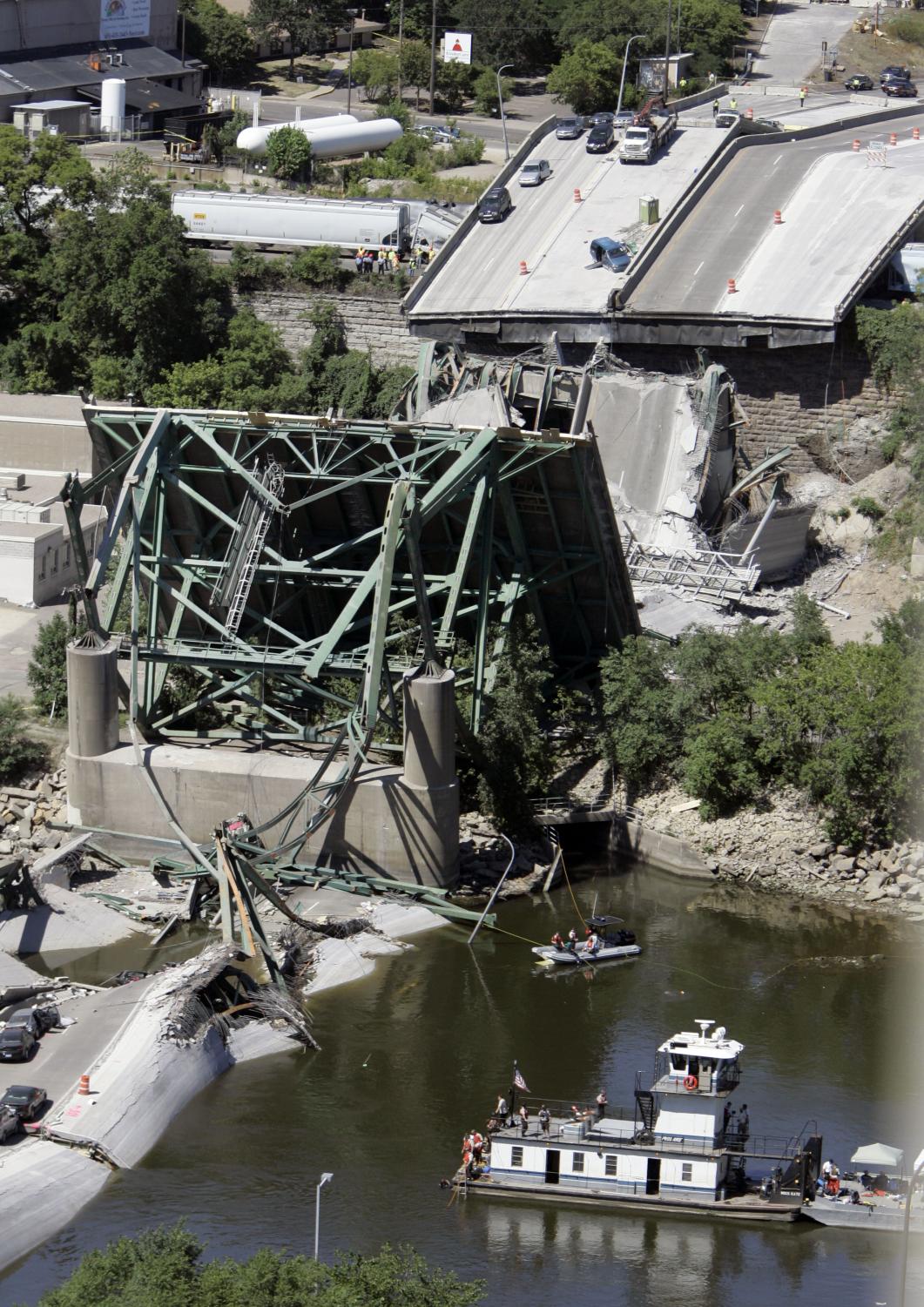WASHINGTON –Federal gasoline taxes should be raised up to 40 cents per gallon over five years, a special commission urged Tuesday in calling for drastic changes to fix aging bridges and roads and reduce traffic deaths.
The two-year study by the National Surface Transportation Policy and Revenue Study Commission is the first to recommend broad changes after the devastating bridge collapse in Minneapolis last August. It warns that urgent action is needed to avoid future disasters.
Among the other recommendations by the 12-member commission:
- Work to cut traffic fatalities in half over the next 17 years by urging states to embrace new strategies to improve safety.
- Ease traffic congestion by expanding state and local public transit systems and highway capacity.
- Protect the environment by smoothing traffic flow, encouraging alternative commute options such as carpooling and public transit and promoting energy-efficient construction and lighting in transit systems to reduce carbon dioxide emissions.
- Seek to develop new energy sources with new research programs costing $200 million annually over the next decade.
Under the proposal to raise gas taxes, the current tax of 18.4 cents per gallon would be increased by 5 cents to 8 cents annually for five years and then indexed to inflation afterward to help fix the infrastructure, expand public transit and highways as well as broaden railway and rural access.
Other sources of revenue could come from tolls, peak-hour ”congestion pricing” on highways, freight fees and ticket taxes for passenger rail improvements, according to the report.
But the proposals for improving the nation’s transportation system, which are expected to cost $225 billion each year for the next 50 years, is at risk of stalling because of internal division. The commission’s chairwoman, Transportation Secretary Mary Peters, and two other members oppose gas tax increases and were issuing a dissenting opinion to the report that said private-sector investment and tolls would be sufficient.
The gas tax has not been increased since 1993, and recent efforts by Congress to raise it have faltered over the objections of the Bush administration. The tax increase is designed to take effect in 2009, after President Bush leaves office.
It is time for a ”new beginning,” the report said, calling the current strategy of patchwork repair ”no longer acceptable.”
The report also calls for the country to rebuild and expand its rail network to meet a growing demand for alternatives to congested highways and to promote partnerships between the public and private sectors at U.S. ports.
The commission was formed by Congress in 2005 to study the future needs of the nation’s surface transportation system, which includes roads, mass-transit systems, ports and rail lines _ as well as to recommend funding options.
The report comes as state governments and several business groups, including the U.S. Chamber of Commerce and the National Association of Manufacturers, are calling on the federal government to raise gas taxes to pay for substantial transportation improvements. The Minneapolis bridge collapse, which killed 13 people and injured about 100, also shone a national spotlight on the unsteady condition of the nation’s roads and bridges and drew new calls for additional spending.
The Bush administration has said that raising taxes won’t cut congestion and creates additional risks for congressional pork, such as Alaska’s infamous multimillion dollar ”Bridge to Nowhere,” which has been scuttled.
In its report, the commission unanimously agreed that measures of accountability were needed to keep watch over state and federal spending.
Besides Peters, the two commissioners opposing a tax increase are Maria Cino, Peters’ former deputy who is organizing the 2008 Republican National Convention, and Rick Geddes, a Cornell University professor who has served as a senior staff economist in the Bush administration on the President’s Council of Economic Advisers.







